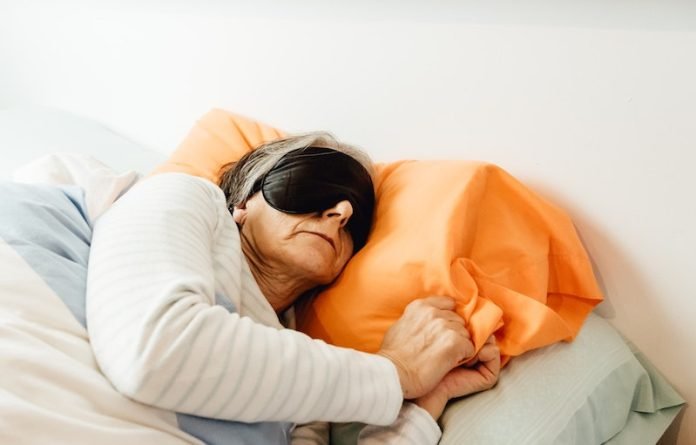
It’s estimated around 50% of elderly people have obstructive sleep apnea when their throat muscles intermittently collapse and block the airway during sleep causing their breathing to stop and start.
In a study from The University of Queensland, scientists found a link between sleep apnea and an increased risk of developing dementia.
They found a causal relationship between a lack of oxygen to the brain during sleep and Alzheimer’s disease.
The findings demonstrated that hypoxia—when the brain is deprived of oxygen—caused the same selective degeneration of neurons that characteristically die in dementia.
The current gold standard treatment is a CPAP (continuous positive airway pressure) machine, which keeps the airway open during sleep and allows oxygen to the brain.
In the study, the team experimentally prevented the hypoxia in mice and this stopped the cognitive impairment and neuron death, and also reduced Alzheimer’s pathology.
This suggests that the treatment of obstructive sleep apnea has the potential to reduce dementia risk.
The team says the findings could change the way dementia clinicians diagnose and treat their patients.
Thirty percent of people with obstructive sleep apnea being fitted for CPAP machines already display signs of dementia-like cognitive impairment. Unfortunately, the hospital system isn’t referring those people to dementia clinics.
Some dementia clinicians have reported their patient’s memory has improved after their sleep problems were identified and treated.
The team says the next step would be to determine what levels of hypoxia result in brain degeneration in humans.
Early-stage human trials are underway to determine the correlation between hypoxia and sustained cognitive impairment, and whether CPAP can reduce dementia risk.
They strongly recommend anyone with obstructive sleep apnea use a CPAP machine to maintain cognitive function, as well as assist with other health issues.
If you care about sleep, please read studies about dinner time that can affect your blood sugar control, and this new drug could reduce symptoms of sleep apnea.
For more information about sleep, please see recent studies about the cause of sleepiness in Alzheimer’s disease, and results showing these antioxidants could help reduce dementia risk.
The study was conducted by Professor Elizabeth Coulson et al and published in Nature Communications.
Copyright © 2022 Knowridge Science Report. All rights reserved.



